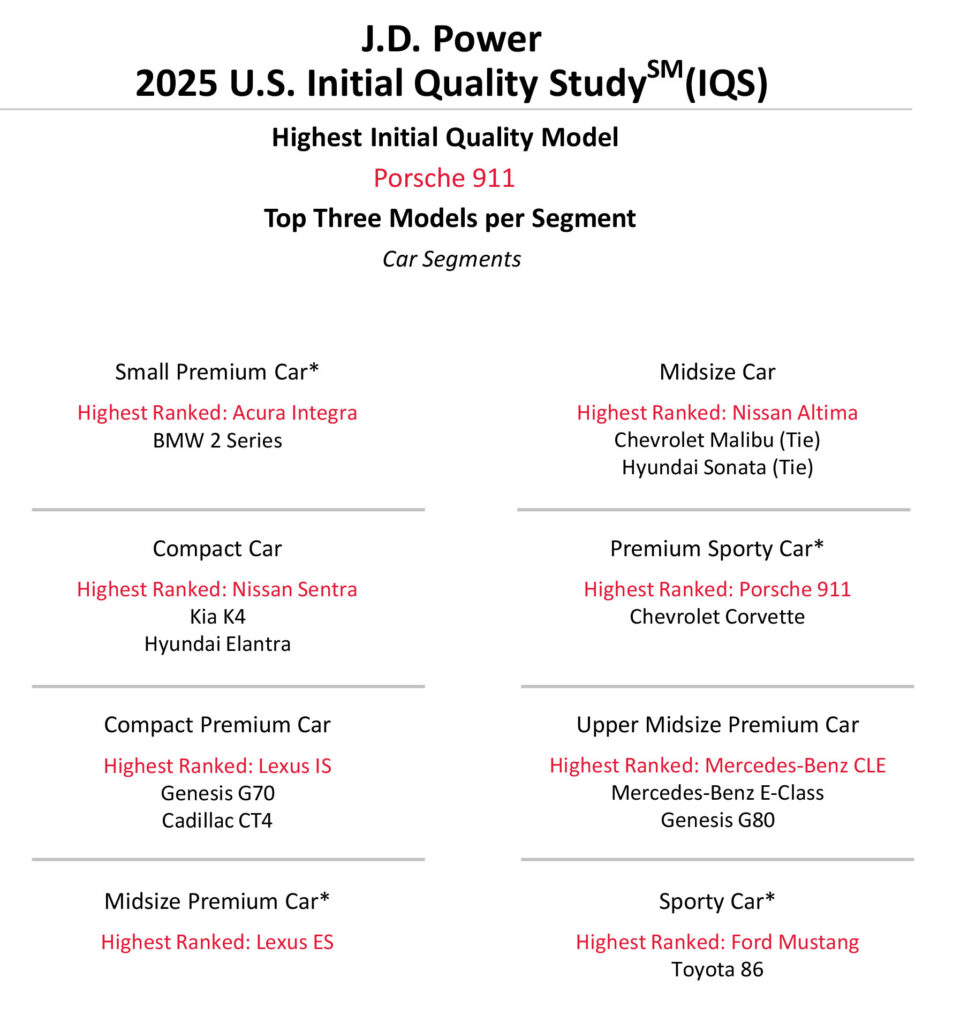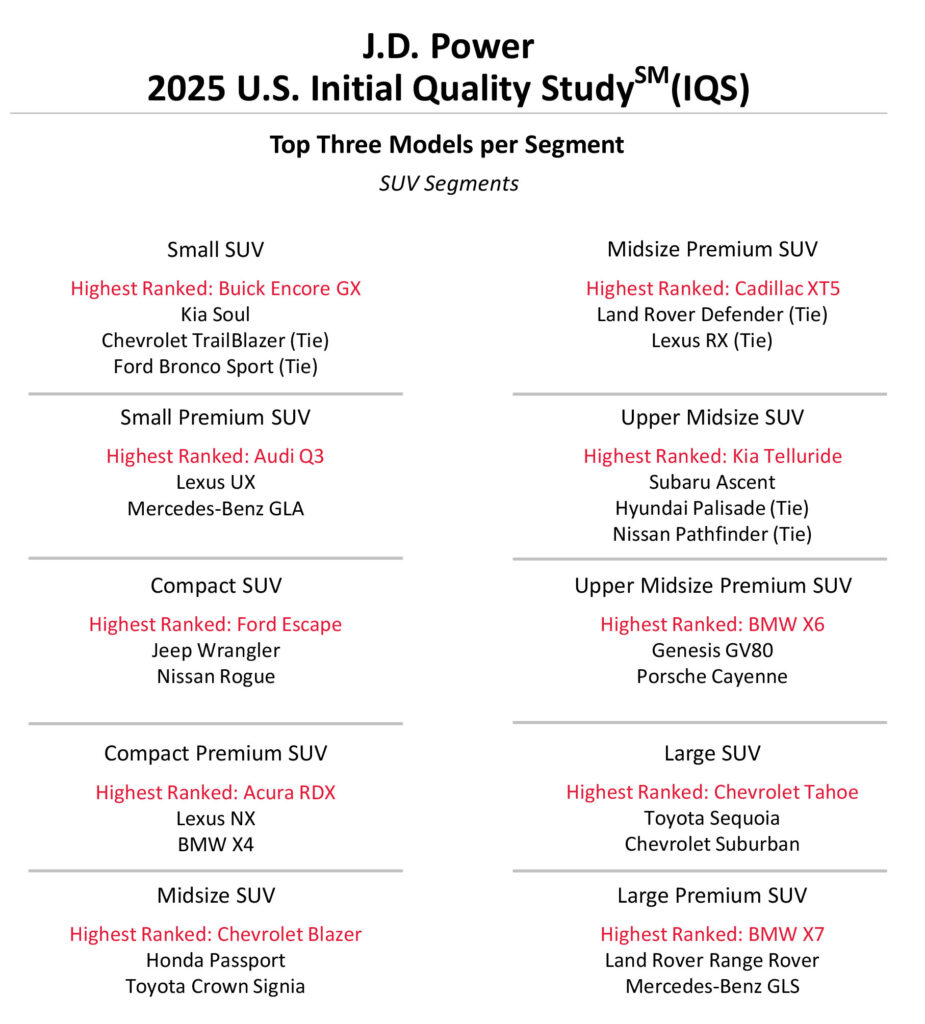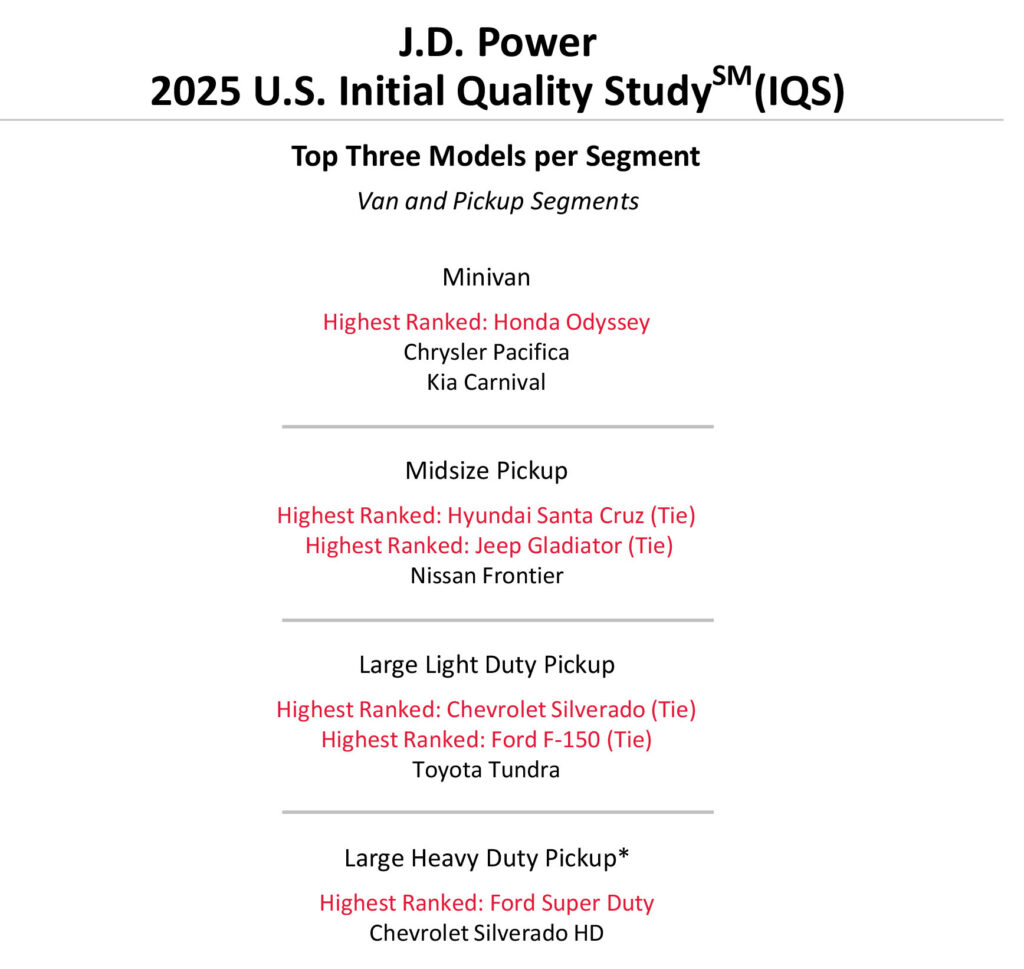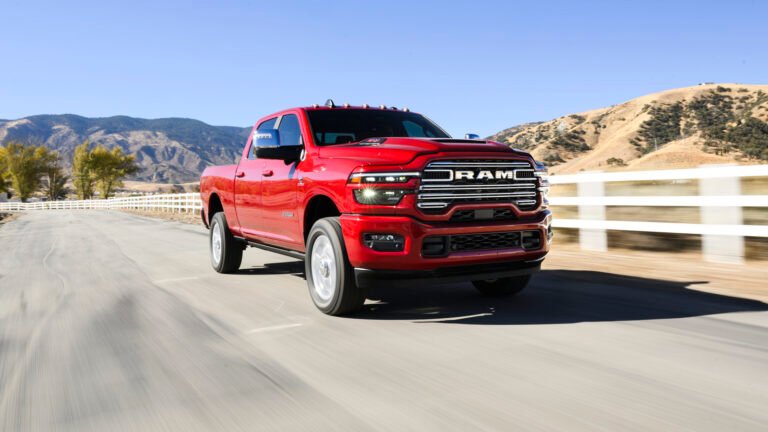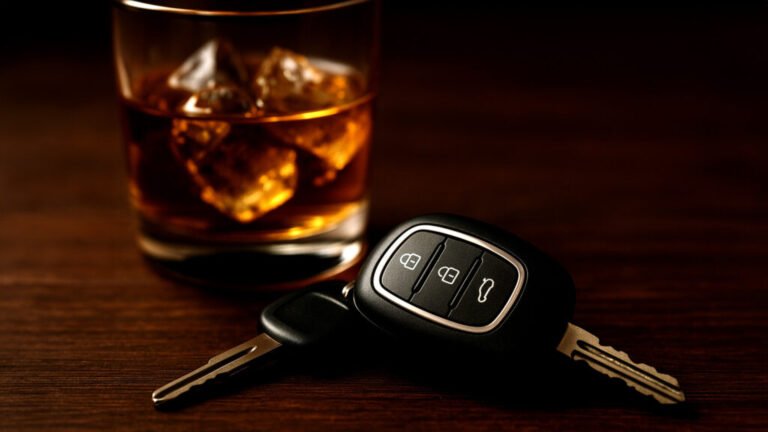
- Touchscreens may look sleek, but their everyday usability often frustrates drivers.
- Lexus leads J.D. Power’s latest U.S. Initial Quality Study, while Rivian ranks dead last.
- PHEVs top the list for early issues, beating both EVs and hybrids in reported problems.
Bigger screens, sleeker interfaces, fewer buttons: that’s the direction automakers have been charging toward in recent years, convinced that futuristic digital cockpits will win over buyers. But according to J.D. Power’s latest Initial Quality Study, this approach might be backfiring.
Infotainment systems now generate more complaints than any other part of a new car within the first few months of ownership, suggesting that tech overload might be more irritating than impressive.
More: Porsche, Lexus Crush Rivals In Service Rankings While Ram, VW, Hyundai Sink To Bottom
While the overall number of infotainment-related issues has improved slightly compared to last year, touchscreens still dominate the list of top frustrations across the industry. Centralizing features like climate control within a touchscreen may look slick, but it’s turning daily tasks into multi-step distractions, leading some automakers to quietly rethink their strategy for upcoming models.
Screens Look Great, But Feel Clunky
Frank Hanley, senior director of auto benchmarking at J.D. Power, explained: “While customers do find the larger touchscreens visually appealing, their functionality within the vehicle is an increasing source of frustration. Customers are having to tap and swipe through multiple screens to access key vehicle functions like climate settings and built-in garage door openers.”
Hanley noted that returning to physical buttons for key features could help reduce these complaints and improve the user experience. After all, the goal is convenience, not turning your dashboard into a puzzle.
Cupholder Design Is Still Weirdly Difficult
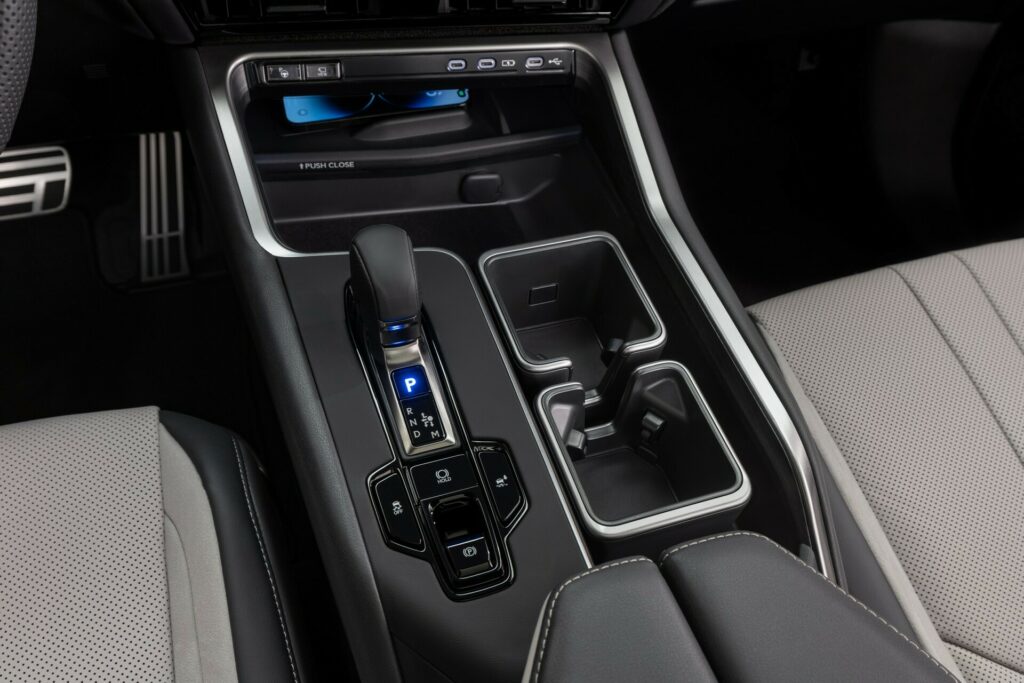
Beyond screen woes, owners are now calling out a new grievance: cupholder compatibility. As more drivers bring along reusable water bottles, coffee flasks, and various oddly shaped containers, many are finding that their cars still haven’t caught up. J.D. Power reports an uptick in complaints about cupholders not accommodating real-world use, an issue that seems minor until your $50 bottle tips over every time you take a corner.
Lexus Tops Initial Quality Study, Jaguar Impresses At 4th Place
The latest Initial Quality Study by J.D. Power reflects feedback from 92,694 new car buyers and lessees in the U.S. during the first 90 days of ownership. Brands are scored based on the number of reported problems per 100 vehicles, so a lower score signals higher quality.
However, it’s worth noting that the score doesn’t account for the severity of those problems, as an easily fixable squeaky trim panel counts the same as a failed transmission. And just as important, this study in no way reflects long-term reliability; it simply captures how many issues owners experience with their brand-new cars right off the lot.
Lexus took the top spot for 2025 with a score of 166, followed by Nissan (169) and Hyundai (173). The biggest surprise in the rankings came from Jaguar, which landed in fourth place with a score of 175, beating out several brands typically praised for their (long-term) reliability. Rounding out the top five was Chevrolet at 178, though it slipped three spots compared to last year.
More: This EV Owner Feared Their SUV Was Totaled After A Mere Tap
At the other end of the chart, Rivian scored a dismal 274, the worst of any brand. Audi (269) and Volvo (254) weren’t far behind. Tesla did improve significantly from last year’s 262, but still landed at 200. Meanwhile, Ram fell hard from first place last year (148) to a middling 218 this time around.
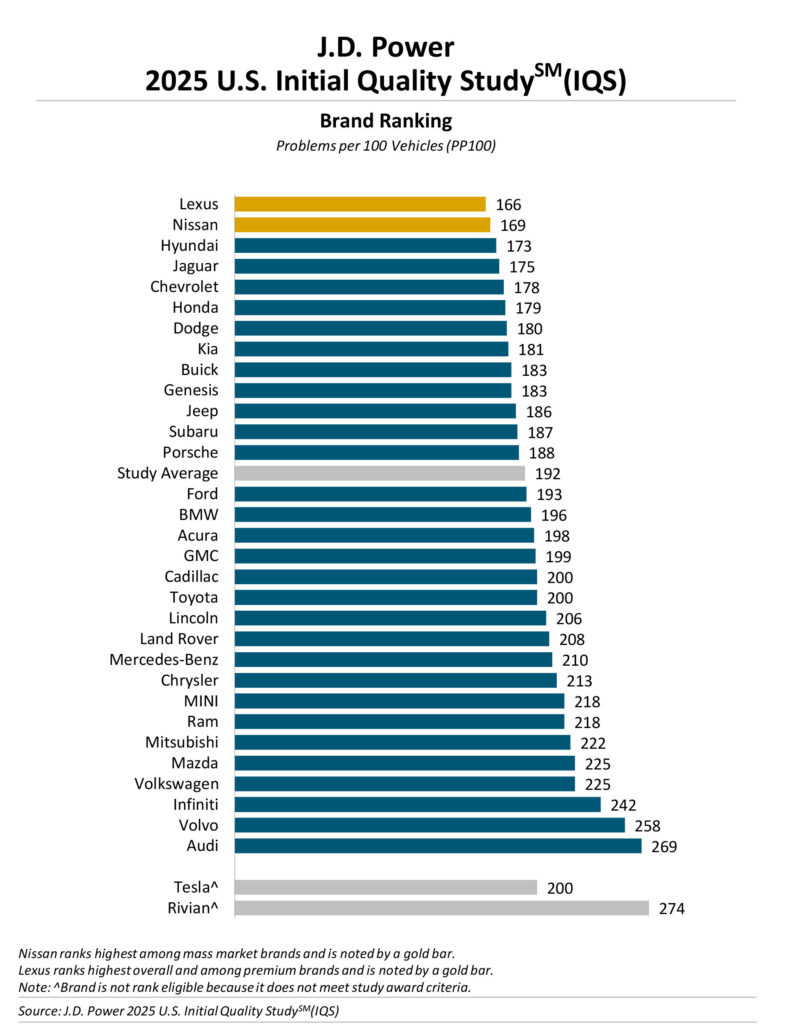
GM Dominates Model Categories, Plug-Ins Take a Hit
When it comes to specific vehicles, General Motors came out strong. The Buick Encore GX, Cadillac XT5, Chevrolet Tahoe, Blazer, and Silverado all ranked highest in their respective segments. Ford followed with four model wins, while Honda claimed three.
Looking at powertrains, plug-in hybrids were the most problematic group this year, with a score of 237. That’s even worse than battery electric vehicles, which scored 212. Regular hybrids fared better at 196, but still trailed behind good old gasoline models, which scored 184.
Lastly, newly launched models reported more issues on average (203) than carryover models (190), a common trend in these kinds of studies as fresh designs tend to bring fresh bugs.
